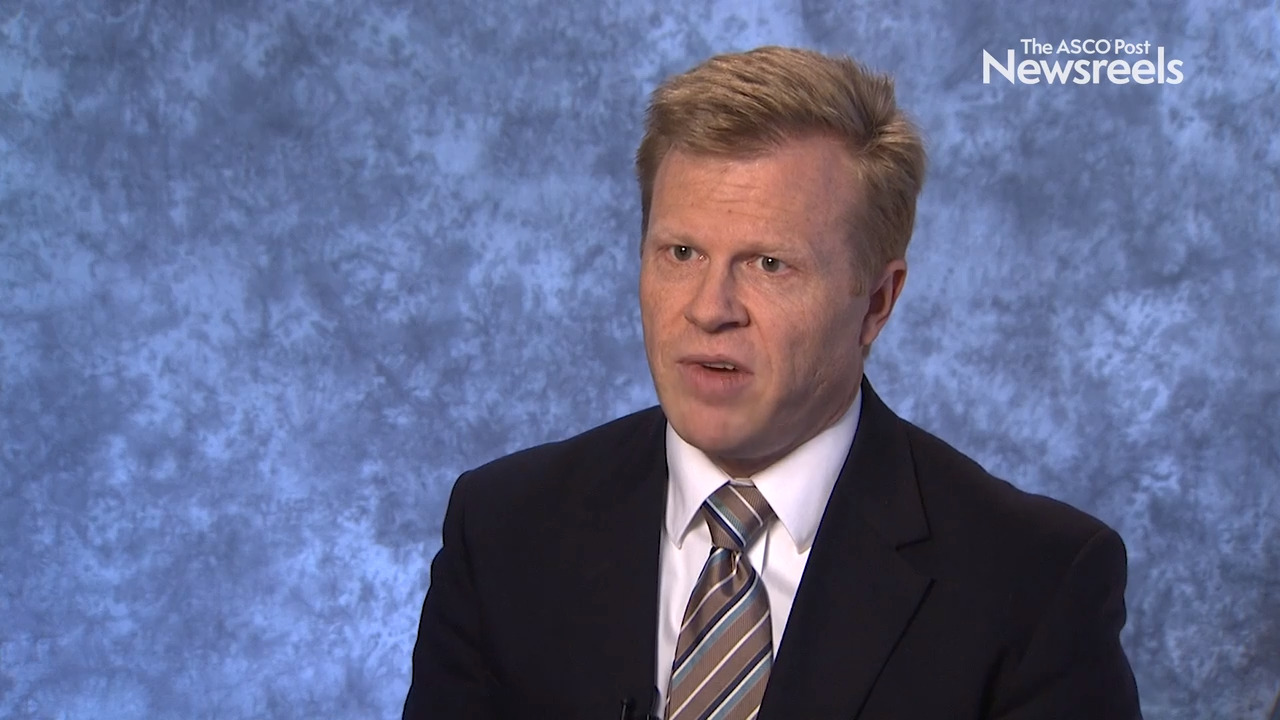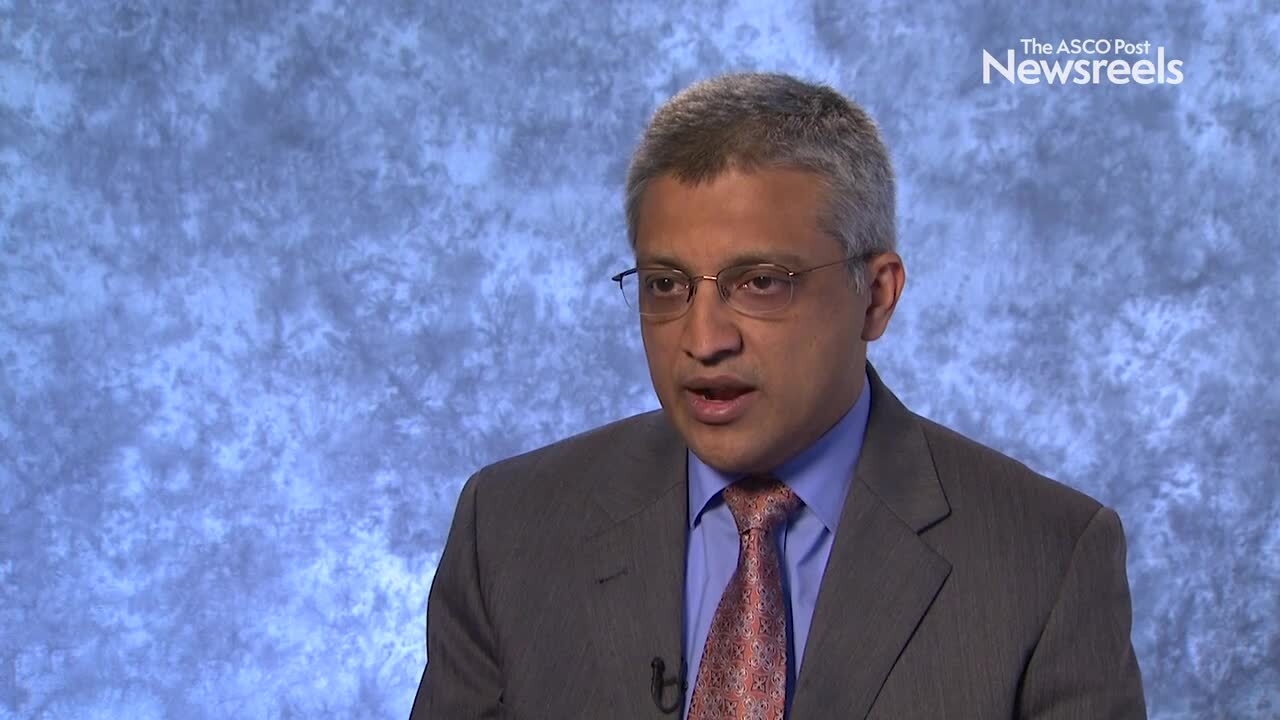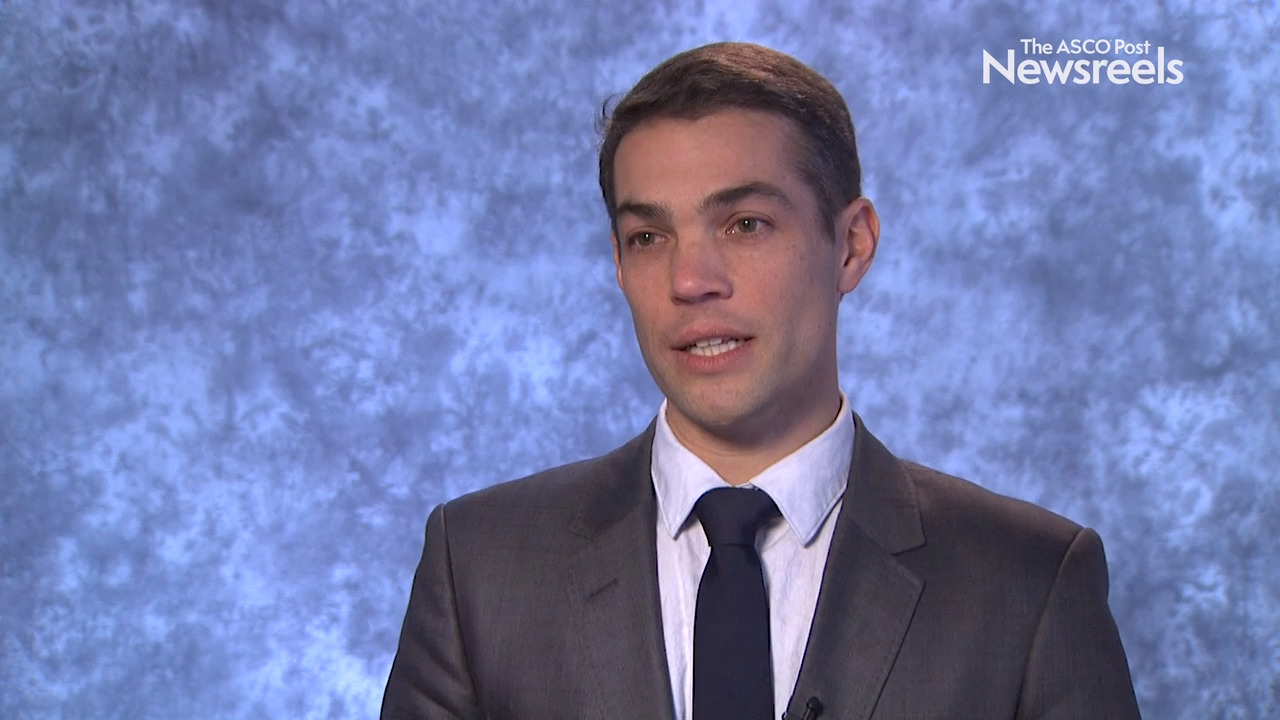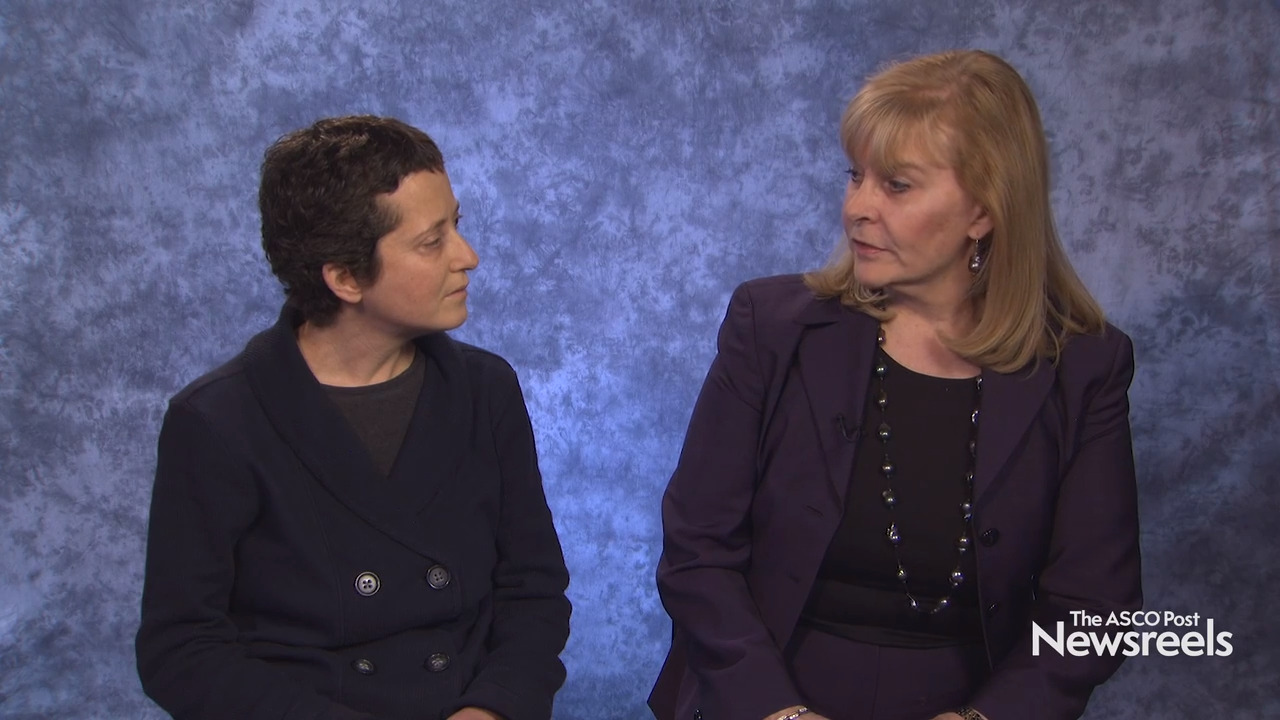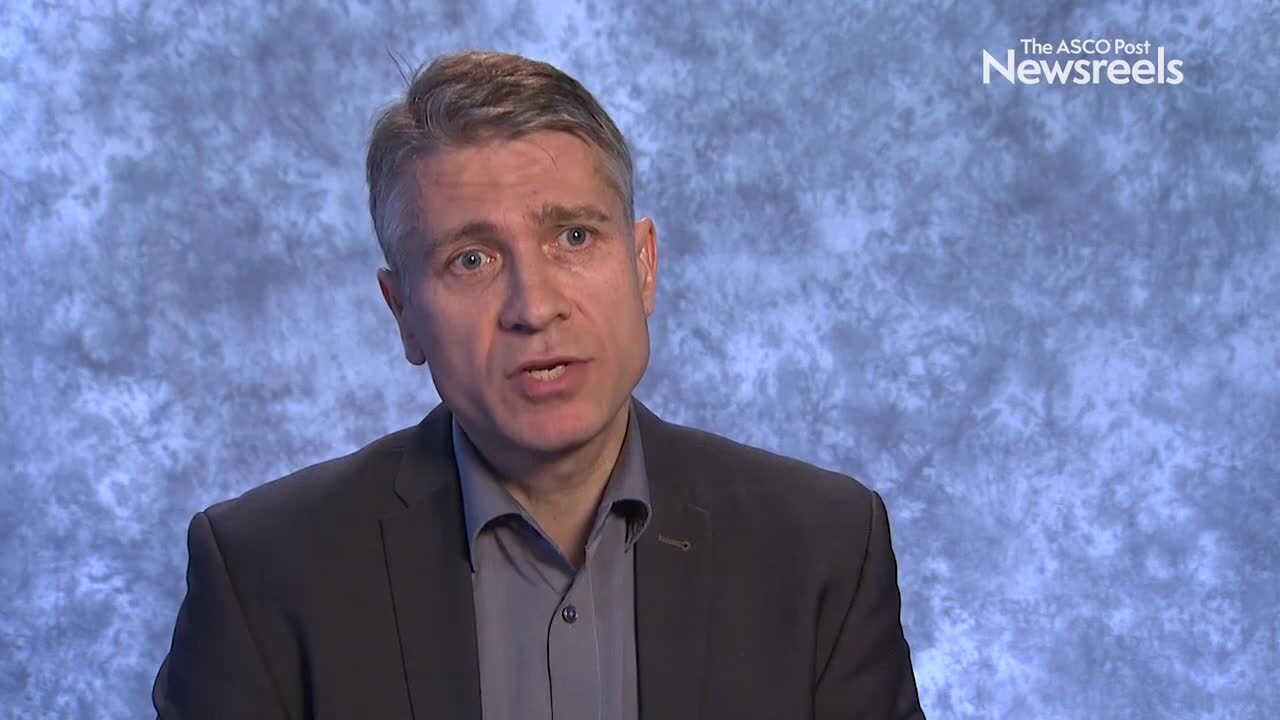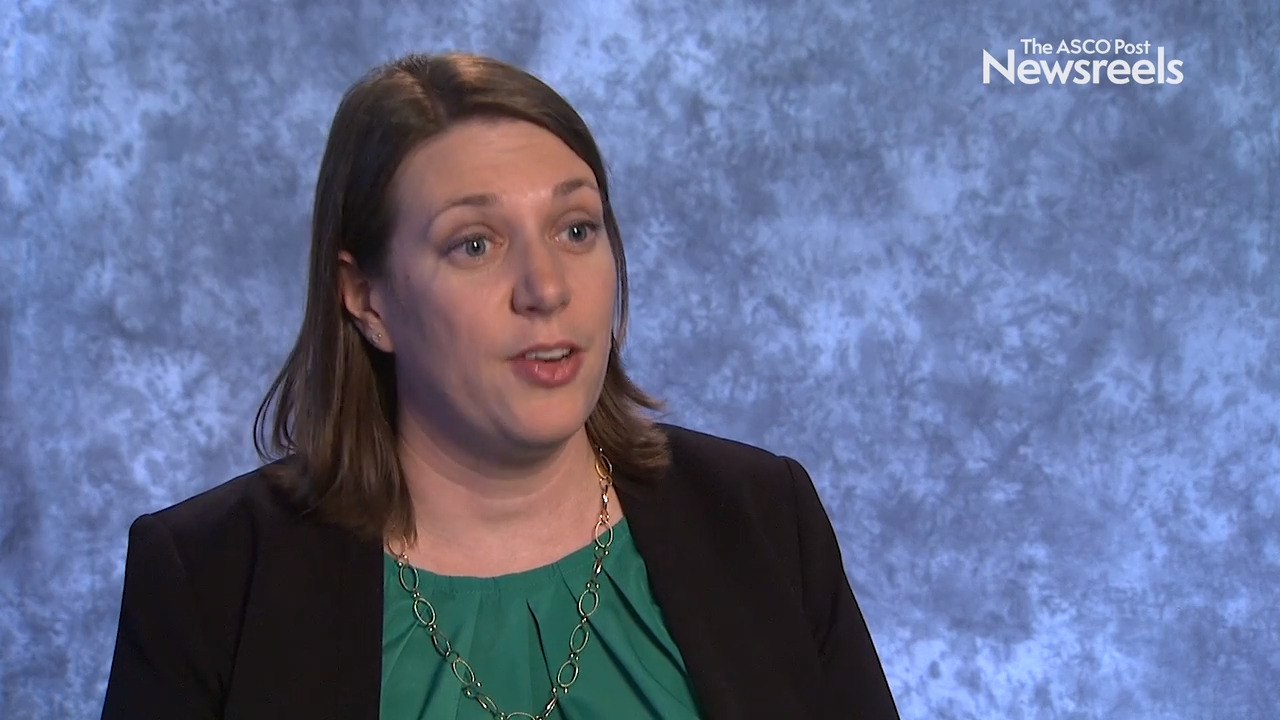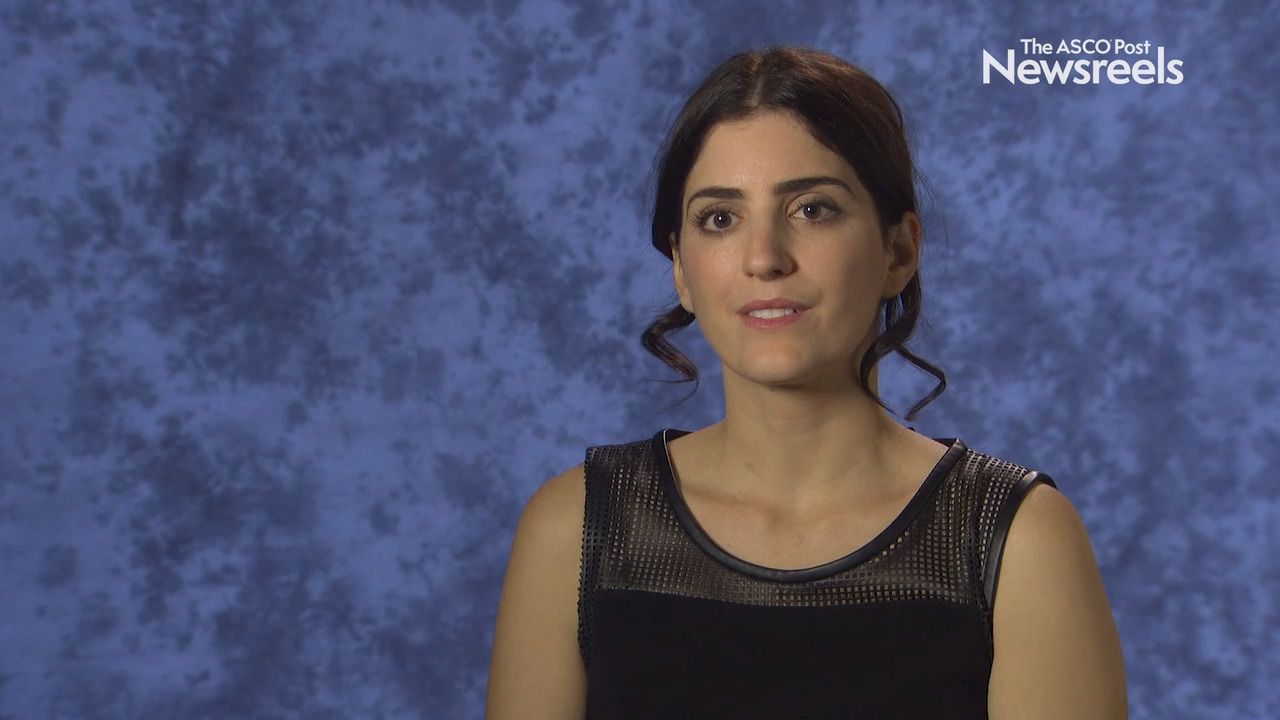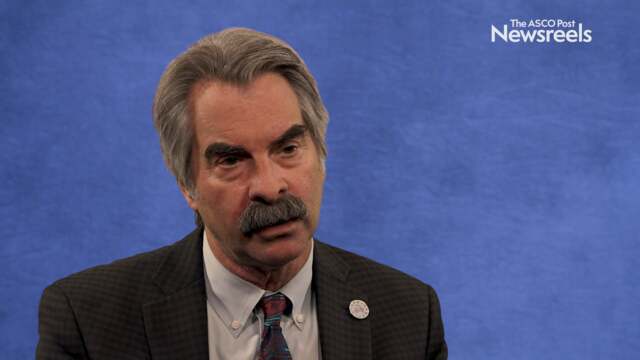A Battle With Leukemia: Part Memoir, Part Oncology History
BOOKMARK Title: Cancer Crossings: A Brother, His Doctors, and the Quest for a Cure to Childhood LeukemiaAuthor: Tim WendelPublisher: ILR PressPublication date: April 2018Price: $24.95, hardcover, 256 pages Tim Wendel is a journalist and author of several noted books, mostly concerning sports. In...
ASH 2018: Researchers Identify Mutation in BCL2 Protein That Causes Resistance to Venetoclax in Progressive CLL
Investigators from Australia have identified a genetic mutation that causes resistance to the targeted drug venetoclax (Venclexta) in patients with chronic lymphocytic leukemia (CLL), according to research presented by Blombery et al at the 2018 American Society of Hematology (ASH) Annual Meeting...
ASH 2018: Ibrutinib Plus Rituximab vs Standard Chemoimmunotherapy in Younger Patients With Treatment-Naive CLL
A 6-month course of chemotherapy-based treatment with FCR (intravenous fludarabine and cyclophosphamide plus rituximab [Rituxan]) has historically been the most effective treatment for chronic lymphocytic leukemia (CLL), especially in patients 70 years of age and younger. However, results from a...
Tait D. Shanafelt, MD, on CLL: Results From a Trial of the ECOG-ACRIN Cancer Research Group
Tait D. Shanafelt, MD, of Stanford University, discusses phase III study findings on ibrutinib-based therapy vs standard fludarabine, cyclophosphamide, and rituximab chemoimmunotherapy in untreated younger patients with chronic lymphocytic leukemia (Abstract LBA4).
Shaji K. Kumar, MD, on Newly Diagnosed Multiple Myeloma: Treatment Trial Results
Shaji K. Kumar, MD, of the Mayo Clinic, discusses phase III findings on daratumumab plus lenalidomide and dexamethasone vs lenalidomide and dexamethasone in people with newly diagnosed multiple myeloma who are ineligible for transplant (Abstract LBA2).
Saar I. Gill, MD, PhD, on CLL: Trial Results on Anti-CD19 CAR T Cells
Saar I. Gill, MD, PhD, of the University of Pennsylvania, discusses findings from a prospective clinical trial on the high response rate in patients with chronic lymphocytic leukemia who received a combination therapy of CAR T cells plus ibrutinib (Abstract 298).
Julie Vose, MD, MBA, and Merav Bar, MD, on CAR T-Cell Therapy: Late Effects of CD19-Targeted Treatment
Julie Vose, MD, MBA, of the University of Nebraska Medical Center, and Merav Bar, MD, of the Fred Hutchinson Cancer Research Center, discuss study findings on the long-term effects in people with relapsed or refractory non-Hodgkin lymphoma and chronic lymphocytic leukemia who received CD19-targeted CAR T-cell infusions, survived more than a year, and had at least 1 year of follow-up data after their first treatment (Abstract 223).
Andreas Burchert, MD, on AML: Results From the Sormain Trial
Andreas Burchert, MD, of the Philipps University of Marburg, discusses study findings on sorafenib as maintenance therapy after allogeneic stem cell transplantation for FLT3-ITD–positive acute myeloid leukemia.
ASH 2018: Rapid Genetic Screening Shows Feasibility of Precision Medicine for AML
A new study demonstrated it is feasible for health-care providers to determine which molecular subtype of acute myeloid leukemia (AML) a patient has before beginning treatment and to use this information to pick an approach that best matches the individual. The results, presented by Burd et al at...
Jennifer Ann Woyach, MD, on CLL: Results From the Alliance North American Intergroup Study
Jennifer Ann Woyach, MD, of The Ohio State University, discusses trial findings on ibrutinib alone or in combination with rituximab compared with bendamustine plus rituximab in untreated older people with chronic lymphocytic leukemia (Abstract 6).
ASH 2018: Hematopoietic Stem Cell Transplant After CD19 CAR T-Cell Therapy in ALL
In a new study presented by Summers et al at the 2018 American Society of Hematology (ASH) Annual Meeting & Exposition (Abstract 967), patients with acute lymphoblastic leukemia (ALL) who received a first stem cell transplant after CD19 chimeric antigen receptor (CAR) T-cell therapy were less...
ASH 2018: Checkpoint Inhibitors Plus CAR T-Cell Therapy in Relapsed ALL
CD19-directed chimeric antigen receptor (CAR) T-cell therapy has been shown to be effective in patients with relapsed B-cell acute lymphocytic leukemia (B-ALL). However, in some patients, the antitumor effects of CAR T-cell treatment are short-lived, which may, in part, be caused by a reaction of...
ASH 2018: Concurrent Ibrutinib May Improve Outcomes, Reduce Toxicity of CAR T-Cell Therapy in Relapsed or Refractory CLL
For patients with difficult-to-treat chronic lymphocytic leukemia (CLL), continuing to take ibrutinib (Imbruvica) before, during, and after receiving chimeric antigen receptor (CAR) T-cell therapy may be associated with less severe adverse effects and better responses compared with outcomes for a...
ASH 2018: ELIANA Trial: Tisagenlecleucel in Pediatric and Young Adult Patients With ALL
A single infusion of tisagenlecleucel (Kymriah) in pediatric and young adult patients with relapsed or treatment-resistant acute lymphocytic leukemia (ALL) continues to be highly effective in most patients, without the need for additional therapies. This latest analysis of the ELIANA trial results...
ASH 2018: Ibrutinib Alone or in Combination With Rituximab vs Bendamustine Plus Rituximab in Older Patients With CLL
A new study presented by Woyach et al at the 2018 American Society of Hematology (ASH) Annual Meeting & Exposition (Abstract 6) showed that older patients with chronic lymphocytic leukemia (CLL) have a significantly lower rate of disease progression if treated with ibrutinib rather than...
ASH 2018: Azacitidine With Nivolumab Plus Ipilimumab vs Azacitidine Plus Nivolumab in Relapsed or Refractory AML
A triplet therapy combining two immune checkpoint inhibitors with the standard of care azacitidine has shown promising results for treatment of relapsed or refractory acute myeloid leukemia (AML), according to the findings of a phase II study conducted at The University of Texas...
MRD-Guided Azacitidine Treatment in Myelodysplastic Syndrome and Acute Myeloid Leukemia
In a German phase II trial (RELAZA2) reported in The Lancet Oncology, Platzbecker et al found that minimal residual disease (MRD)–guided treatment with azacitidine was successful in preventing hematologic relapse in patients with myelodysplastic syndrome (MDS) and acute myeloid leukemia...
FDA Approves Gilteritinib for Relapsed or Refractory FLT3-Mutated AML
Today, the U.S. Food and Drug Administration (FDA) approved gilteritinib (Xospata) for the treatment of adult patients who have relapsed or refractory acute myeloid leukemia (AML) with a FLT3 mutation as detected by an FDA-approved test. The FDA also approved an expanded indication for a companion ...
FDA Approves Venetoclax Combination for Adults With AML
On November 21, 2018, the U.S. Food and Drug Administration (FDA) granted accelerated approval to venetoclax (Venclexta) in combination with azacitidine or decitabine or low-dose cytarabine for the treatment of newly diagnosed acute myeloid leukemia (AML) in adults who are age 75 years or older or...
Causes of Inferior Outcomes in AYAs With Leukemia
Despite survival gains for children diagnosed with acute lymphoblastic leukemia (ALL), adolescents and young adults (AYAs)— those between the ages of 15 and 39— diagnosed with the disease have seen only modest improvements in survival. A study by Julie A. Wolfson, MD, MSHS, Assistant Professor and ...
A Single CAR T Cell Cured My Chronic Lymphocytic Leukemia
The combination of symptoms I began experiencing in the spring of 2007, including night sweats so severe they woke me from a sound sleep and midline chest wall swelling so extreme I needed a larger shirt size, drove me to seek immediate medical attention. A series of imaging and blood tests...
FDA Approves Glasdegib for Patients With Newly Diagnosed AML Who Cannot Undergo Intensive Chemotherapy
Today, the U.S. Food and Drug Administration (FDA) approved glasdegib (Daurismo) tablets to be used in combination with low-dose cytarabine for the treatment of newly diagnosed acute myeloid leukemia (AML) in adults who are 75 years of age or older or with comorbidities that may preclude the use of ...
Duvelisib in Resistant Chronic Lymphocytic Leukemia: Expanding the Treatment Armamentarium
The phase III DUO trial, reported by Flinn et al and reviewed in this issue of The ASCO Post, has led to the U.S. Food and Drug Administration (FDA) approval of a novel B-cell receptor (BCR) kinase inhibitor, duvelisib (Copiktra), which targets phosphoinositide 3-kinase (PI3K)-δ/γ in patients...
Duvelisib vs Ofatumumab in Relapsed or Refractory CLL/SLL
As reported in Blood by Ian W. Flinn, MD, PhD, Director of the Lymphoma Research Program at Sarah Cannon Research Institute, and colleagues, the phase III DUO trial has shown significantly prolonged progression-free survival with the phosphoinositide 3-kinase (PI3K)-δ/γ inhibitor duvelisib...
Leukemia & Lymphoma Society Receives Funding for New Grants
The Leukemia & Lymphoma Society recently announced a $1,175,000 commitment by the Schwartz Ward Family Foundation of Chicago to support two research initiatives. These funds will support two grants in the society’s Career Development Program: Christiane Querfeld, MD, PhD, of City of Hope, is...
Azacitidine Plus Nivolumab in Relapsed or Refractory AML
A combination of the chemotherapy drug azacitidine with the immune checkpoint inhibitor nivolumab (Opdivo) demonstrated an encouraging response rate and overall survival in patients with relapsed or refractory acute myeloid leukemia (AML), according to findings from a phase II study published...
Suleika Jaouad on Making the Most of a Life Interrupted: A Young Adult Perspective on Cancer
Suleika Jaouad, an Emmy Award–winning writer, advocate, and cancer survivor who was diagnosed at age 22 with myelodysplastic syndrome and acute myeloid leukemia, discusses what she has learned about coping with cancer, learning from it, and growing beyond it.
Dysregulation of Immune Pathways in AML Relapse After Allogeneic HSCT
In a study reported in The New England Journal of Medicine, Christopher et al found that acute myeloid leukemia (AML) relapse after allogeneic hematopoietic stem cell transplantation (HSCT) was accompanied by dysregulation of immune pathways, including downregulation of major histocompatibility...
Effect of Early Cardiotoxicity on Outcomes in Pediatric AML
In an analysis from the Children’s Oncology Group AAML0531 trial reported in the Journal of Clinical Oncology, Getz et al found that early treatment-related cardiotoxicity may be associated with poorer event-free and overall survival in pediatric acute myeloid leukemia (AML). Study Details...
Venetoclax for CLL or SLL With or Without 17p Deletion After Prior Therapy
On June 8, 2018, venetoclax (Venclexta) was granted regular approval for treatment of patients with chronic lymphocytic leukemia (CLL) or small lymphocytic lymphoma (SLL), with or without 17p deletion, who have received at least one prior therapy.1,2 Supporting Efficacy Data APPROVAL WAS BASED on ...
Without Genomic Sequencing, I Would Not Be Alive Today
The extreme fatigue I experienced during the winter of my fourth year in medical school, in 2003, was easily attributable to the rigors of my medical training and the lack of sleep that comes from trying to keep up with an intensely busy schedule. I was looking forward to resting and recuperating...
Nilotinib for Pediatric Patients With Philadelphia Chromosome–Positive CML in Chronic Phase
Earlier in 2018, nilotinib (Tasigna) was approved for the treatment of pediatric patients aged ≥ 1 year with newly diagnosed Philadelphia chromosome–positive chronic myeloid leukemia in chronic phase (CML-CP) or Philadelphia chromosome–positive CML-CP resistant or intolerant to prior tyrosine...
Current Treatment Landscape of Relapsed or Refractory Chronic Lymphocytic Leukemia
Novel agents such as ibrutinib (Imbruvica), idelalisib (Zydelig), and venetoclax (Venclexta) have transformed the treatment of chronic lymphocytic leukemia (CLL) and are increasingly used to treat the disease. The optimal sequencing of these agents is not clear in relapsed or refractory disease,...
Duvelisib vs Ofatumumab in Relapsed or Refractory CLL/SLL
As reported in the journal Blood by Flinn et al, the phase III DUO trial has shown significantly prolonged progression-free survival with the phosphoinositide 3-kinase (PI3K)-δ,-γ inhibitor duvelisib (Copiktra) vs ofatumumab (Arzerra) in patients with relapsed or refractory chronic...
Adding Lomustine to Conventional Chemotherapy in Older Patients With AML Without Unfavorable Cytogenetics
As reported in the Journal of Clinical Oncology by Pigneux et al, a French phase III trial (LAM-SA 2007 FILO) has shown an overall survival benefit with the addition of lomustine to conventional chemotherapy in older patients with acute myeloid leukemia (AML) without unfavorable cytogenetics....
FDA Approves Duvelisib for Adult Patients With Relapsed or Refractory Hematologic Malignancies
ON SEPTEMBER 24, 2018, the U.S. Food and Drug Administration (FDA) granted regular approval to duvelisib (Copiktra) for adults with relapsed or refractory chronic lymphocytic leukemia (CLL) or small lymphocytic lymphoma (SLL) after at least two prior therapies. Duvelisib also received accelerated...
Lack of Clinical Trial Participation and Shorter Duration of Therapy Linked to Disease Relapse in AYAs With Leukemia
Despite survival gains for children diagnosed with acute lymphoblastic leukemia (ALL), adolescents and young adults (AYAs)—those between the ages of 15 and 39—diagnosed with the disease have seen only modest improvements in survival. A study by Wolfson et al in Cancer Epidemiology,...
FDA Authorizes First Next-Generation Sequencing–Based Test to Detect Minimal Residual Disease in B-Cell ALL or Multiple Myeloma
The U.S. Food and Drug Administration (FDA) recently permitted marketing of the ClonoSEQ assay, a next-generation sequencing–based test for minimal residual disease in patients with B-cell acute lymphoblastic leukemia (ALL) or multiple myeloma. “At the FDA, we’re continuing to...
Beat AML Trial Seeking to Change Treatment Paradigm
The Beat AML Master Clinical Trial seeks to change the treatment paradigm and outcomes in acute myeloid leukemia (AML) by personalizing therapy and ultimately facilitating the approval of novel targeted agents. Co-investigator William Blum, MD, of the Winship Cancer Institute at the Emory...
Update on CML: Focus on Sequential Therapy, Treatment Discontinuation, and Monitoring
Chronic myeloid leukemia (CML) is a poster child for the success of molecularly targeted therapy, with some patients appearing to be “cured” of their disease and others living for a long time after treatment with a tyrosine kinase inhibitor targeting the BCR-ABL1 protein. However, there are still...
Cost-Effectiveness Models for Tisagenlecleucel in Relapsed or Refractory Pediatric B-Cell ALL
As reported by Lin et al in the Journal of Clinical Oncology, cost-effectiveness modeling of treatment with the anti-CD19 chimeric antigen receptor T-cell therapy tisagenlecleucel (Kymriah) in relapsed or refractory pediatric B-cell acute lymphoblastic leukemia (ALL) showed that price reduction...
Jerald P. Radich, MD, on Chronic-Phase CML: Optimizing Tyrosine Kinase Inhibitor Therapy
Jerald P. Radich, MD, of the Fred Hutchinson Cancer Research Center, discusses the best strategies for sequencing tyrosine kinase inhibitor therapy for chronic myeloid leukemia and treatment-free remission.
FDA Approves Duvelisib for Adult Patients With Relapsed or Refractory CLL, SLL, and Follicular Lymphoma
On September 24, 2018, the U.S. Food and Drug Administration (FDA) granted regular approval to duvelisib (Copiktra) for adult patients with relapsed or refractory chronic lymphocytic leukemia (CLL) or small lymphocytic lymphoma (SLL) after at least two prior therapies. In addition, duvelisib...
FDA Approves Moxetumomab Pasudotox-tdfk for the Treatment of Hairy Cell Leukemia
ON SEPTEMBER 13, 2018, the U.S. Food and Drug Administration (FDA) approved moxetumomab pasudotox-tdfk (Lumoxiti) injection for intravenous use for the treatment of adult patients with relapsed or refractory hairy cell leukemia (HCL) who have received at least two prior systemic therapies,...
Second Allogeneic HCT vs Donor Lymphocyte Infusion in Relapsed Acute Myeloid Leukemia
In a retrospective registry study reported in JAMA Oncology, Mohamad Mohty, MD, PhD, of Hôpital Saint Antoine, Université Pierre et Marie Curie, and colleagues found no overall survival difference with second allogeneic hematopoietic cell transplantation (HCT) vs donor lymphocyte infusion (DLI) in ...
Origins and Genetics Associated With Mixed-Phenotype Acute Leukemia
Investigators have unraveled the origins and identified mutations associated with mixed-phenotype acute leukemia. The study, published by Alexander et al in Nature, potentially lays the foundation for more effective treatment of patients with this high-risk cancer. Mixed-phenotype acute...
CAR T-Cell Therapy for CLL
A pair of new studies from researchers at the Abramson Cancer Center of the University of Pennsylvania are shedding light on why patients with advanced chronic lymphocytic leukemia (CLL) respond or do not respond to chimeric antigen receptor (CAR) T-cell therapy. Although CAR T-cell therapy is...
Durable Responses With Moxetumomab Pasudotox in Pretreated Hairy Cell Leukemia
Moxetumomab pasudotox produced deep and durable responses in a heavily pretreated population of patients with hairy cell leukemia, with the ability to eradicate minimal residual disease. The drug showed a favorable safety profile with less bone marrow suppression than with purine nucleoside analog...
Durable Response With Venetoclax and Azacitidine in Elderly Patients With AML
In elderly patients with untreated acute myeloid leukemia (AML), venetoclax (Venclexta), given at a 400-mg dose, with an azacitidine backbone led to durable responses with a tolerable safety profile, according to data from a phase Ib dose-escalation and -expansion study. Response rates were high...
Childhood Nonlymphoid Leukemia Risk With Maternal Use of Hormonal Contraception
In a population-based cohort study reported in The Lancet Oncology, Hargreave et al found that recent maternal use of hormonal contraception was associated with increased risk of childhood nonlymphoid leukemia. Study Details The study involved data from a nationwide cohort of...
